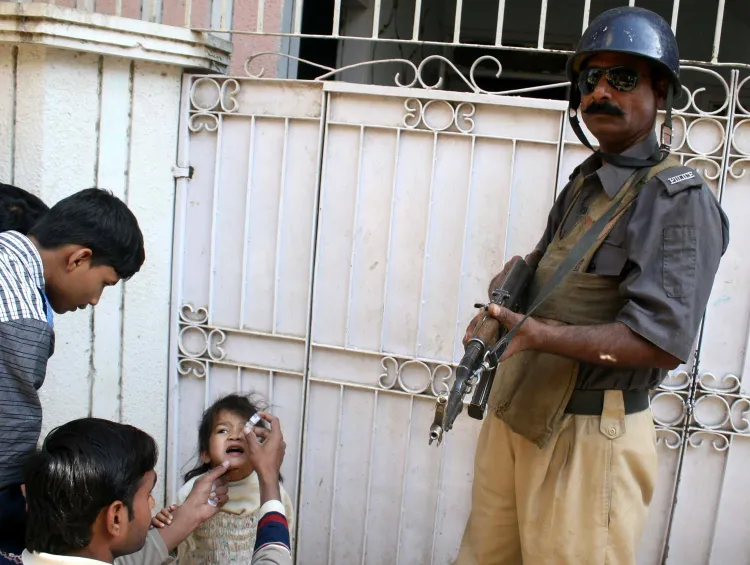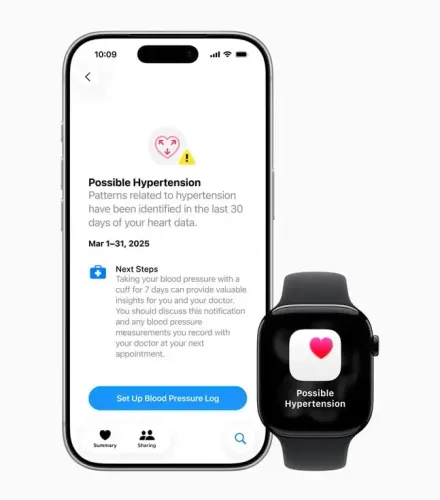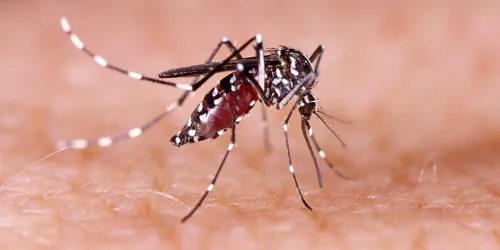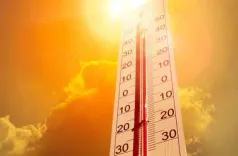Has Pakistan Really Reported Two More Polio Cases? National Tally Reaches 10 in 2025

Synopsis
Key Takeaways
- Two new polio cases reported in Pakistan, raising the national total to 10 in 2025.
- The virus was detected in children from Khyber Pakhtunkhwa.
- Access issues hinder vaccination efforts, putting many children at risk.
- The next vaccination campaign starts on May 26, targeting children under five.
- Pakistan and Afghanistan are the only countries with endemic wild poliovirus.
Islamabad, May 21 (NationPress) Pakistan has confirmed the occurrence of two new polio cases, with the recent identification of the virus in two children from the northwestern province of Khyber Pakhtunkhwa (KP), as stated by the Ministry of National Health Services on Wednesday.
The ministry noted that the Regional Reference Laboratory for Polio Eradication at the National Institute of Health in Islamabad validated the presence of the polio virus in stool samples taken from the affected children in the Lakki Marwat and Bannu districts.
With these latest findings, the count of polio cases in KP has reached five this year, leading to a national total of 10 in 2025.
The ministry pointed out that despite the implementation of high-quality nationwide polio vaccination campaigns, certain regions, especially in KP, continue to face significant challenges.
Access restrictions and difficulties in executing house-to-house vaccination efforts have obstructed progress, leaving numerous children vulnerable to the poliovirus due to missed vaccination chances.
To tackle this issue, the ministry announced that the third nationwide polio vaccination campaign for 2025 will commence on May 26. This campaign aims to vaccinate children under the age of five across 159 districts, including areas at high risk in KP.
Notably, Pakistan and Afghanistan remain the only countries globally where the wild poliovirus is still endemic. Polio workers have frequently faced attacks, particularly in the northwest and southwest regions.
The ongoing presence of the virus can be attributed to widespread refusal among parents to vaccinate their children. Health workers engaged in polio eradication initiatives have been victims of targeted assaults and killings by militant groups opposing these campaigns.
Last month, two health workers involved in Pakistan's anti-polio efforts were kidnapped by unidentified assailants in the Khyber Pakhtunkhwa region.
This incident took place in the Kulachi area of the Dera Ismail Khan district, where armed men intercepted a passenger bus heading to Dera Ismail Khan and forcibly abducted the two workers, as confirmed by a local police official.
The victims were returning from official duties associated with the polio eradication campaign, according to police reports.









